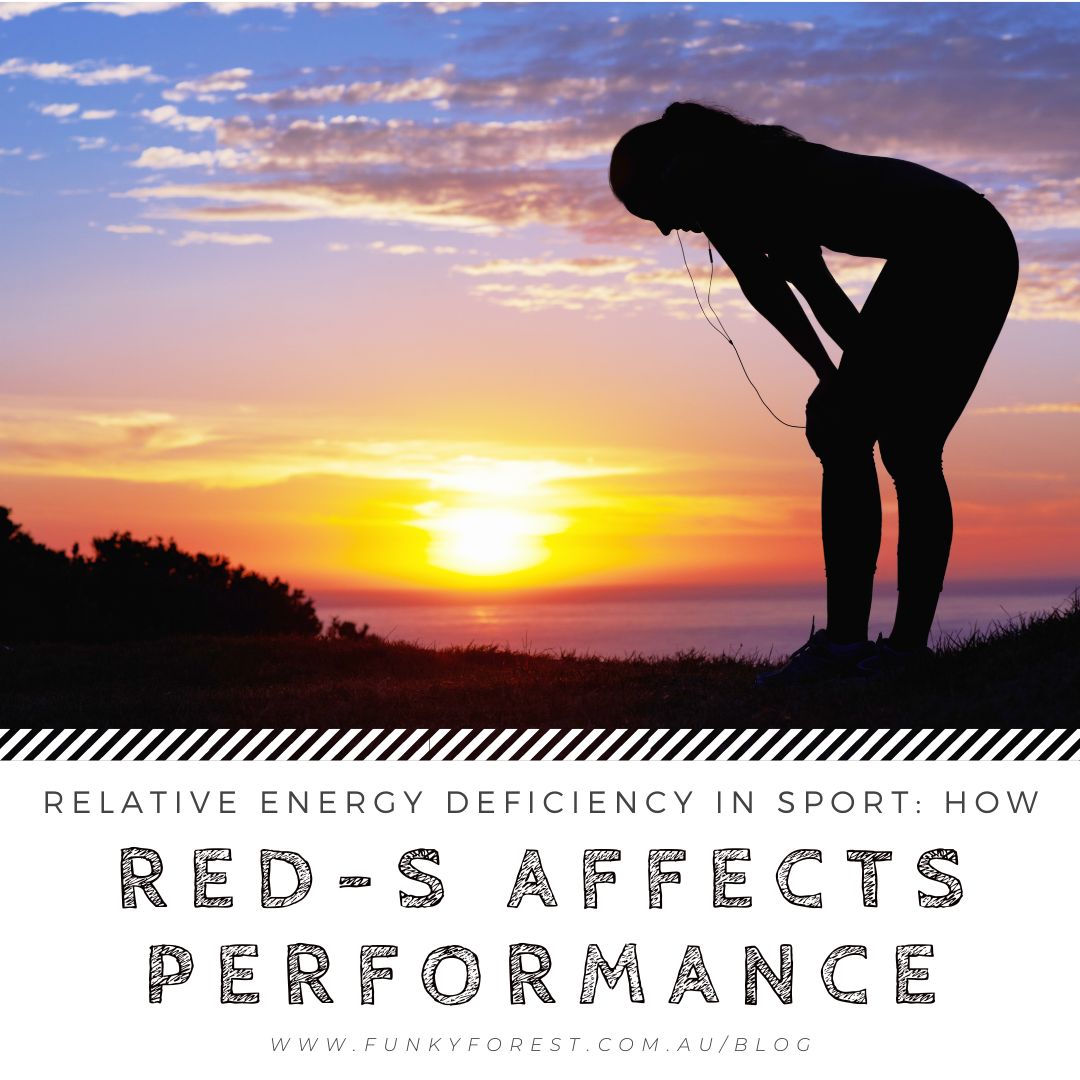Have you ever:
- Worked out (running, weights, team sports etc.), then forgotten to eat until a few hours afterwards when you are STARVING and CRASHING?
- Trained as a dancer, weightlifter, martial artist, rower, runner... and intentionally eaten "a bit less" for a while to make weight or to increase power to weight ratio?
- Not been able to afford to eat as much as you needed whilst training for an event? Or felt you didn't have the time?
- Practised some form of clean eating / low carb / meal skipping (e.g. intermittent fasting) or have special dietary requirements (e.g. vegan, low FODMAP) whilst partaking in an intense 12-week gym fitness challenge?
Yes? Then you may have experienced RED-S, or Relative Energy Deficiency in Sport.
As a triathlete in my 20's I experienced first hand the impacts of under eating on both my sports performance and my health. I lost my period for a year, suffered multiple recurrent ankle injuries, and my energy and moods SUCKED, among other crappy health consequences.
Relative Energy Deficiency in Sport (RED-S) describes a bunch of health and performance consequences of low energy availability. Low energy availability lies at the core of RED-S and results from over-training, under-fuelling, or both.
I've spoken here and here about the negative effects of under-fuelling on our health - whether or not you are an "athlete". But not eating enough can also impact your sports performance in not-so-great ways.
Low energy availability can INCREASE:
- fatigue
- irritability
- anxiety
- depression
- injury risk
- impaired judgement
- muscle cramps
- recurrent illnesses
... and it can DECREASE:
- muscle strength
- glycogen stores
- endurance performance
- training response
- concentration
- coordination
The impacts of RED-S on health may be subtle or visible for some time. However, impacts on performance can be easier to notice. They include anything from mild fatigue, muscle cramps, and niggling repeated injuries, to career-ending health conditions.
Are you fuelling enough for your training load?
If you want to ensure your diet is balanced and supports your fitness goals, speak to a sports dietitian. I'm a provisional SD and love supporting people to optimise their eating for their sports and movement goals! Contact me at [email protected] if you'd like to book a 1-on-1 consultation to untangle your sports nutrition questions and get the very most out of your training.
References
Mountjoy, M., Sundgot-Borgen, J., Burke, L., Carter, S., Constantini, N., Lebrun, C., Meyer, N., Sherman, R., Steffen, K., Budgett, R., & Ljungqvist, A. (2014). The IOC consensus statement: beyond the Female Athlete Triad--Relative Energy Deficiency in Sport (RED-S). British journal of sports medicine, 48(7), 491–497. https://doi.org/10.1136/bjsports-2014-093502


































 RSS Feed
RSS Feed



